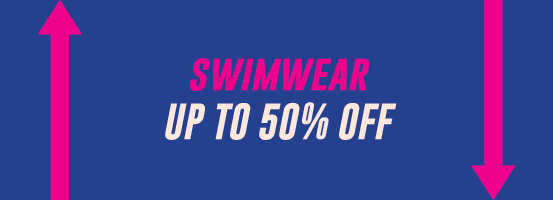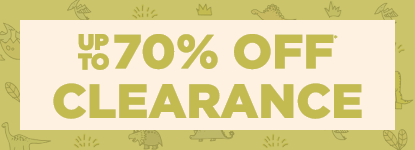At Carter’s | Oshkosh we are committed to ensuring that the manufacture of all of our products is performed in compliance with the highest legal and ethical standards of social responsibility. More than 10 years ago, as part of this commitment, we launched our social responsibility program. Since then, our program has been effective and efficient in addressing the Company’s business needs. Recently, however, the social responsibility landscape and our business needs have changed, and our social responsibility program is evolving to keep pace.
Our Policy
At the heart of our factory monitoring program is our corporate social responsibility policy, which Suppliers contractually agree to follow. The policy is the foundation for our commitment to, and ongoing evaluation of, social responsibility compliance by our Suppliers. While we recognise and respect all the cultural and legal environments in which our Suppliers operate, our policy sets forth minimum social responsibility requirements that Suppliers must satisfy in order to do business with us. The policy outlines standards in the following areas
- Child labor
- Forced labor, Slave labor, and Human Trafficking
- Discrimination
- Harassment or Abuse
- Compensation and Benefits
- Working Hours
- Freedom of Association
- Homework
- Health and Safety
- Environment
- Unauthorised Subcontracting
If the requirements and standards in our policy exceed applicable laws, Suppliers must still comply with our policy.
Monitoring and Remediation
Factory audits are a central pillar of our monitoring program. Since we do not own any of the factories that produce merchandize for our stores, regular audits are conducted to verify that a Supplier is complying with our policy as well as to strengthen working conditions and labor practices in factories. We contract with an accredited and internationally recognized audit provider to execute these audits.
Once a factory is audited an assessment rating is assigned. The assessment rating is based on a number of factors including the frequency, severity and probability of the finding. We have a total of four types of ratings. The rating assigned determines the timeframe for remediation. In general, we prefer to work with Suppliers to address concerns rather than terminating the relationship as such action is unlikely to correct the underlying issue and may cause further hardship on those who depend upon the employment. However, if the Supplier fails to demonstrate improvement, we reserve the right to terminate the business relationship with that Supplier.
Training and Education
We recognized that monitoring alone is not enough. To enhance these efforts and support long term solutions we developed a Supplier training program, which is updated and communicated annually during our global Supplier summit. The training program outlines our expectations and provides specific guidelines on how to best address concerns in the following areas:
- Compensation and Benefits
- Employee Documentation
- Health and Safety
Additionally, Merchandising, Sourcing and Supply Chain teams are trained on our social responsibility program to enhance program awareness and foster more active engagement.
Partnerships
While we worked hard individually to improve our social compliance program and the workplace conditions of factories we source. We recognized that we alone cannot solve many of the pressing issues facing the industry. To effectively address these issues we believe that multi-stakeholder engagement and dialogue are the most productive approaches. To this end, we partner and participate in industry wide initiatives and organisations such as:
- American Apparel & Footwear Industry– Carter’s is a member of the American Apparel & Footwear Association Social Responsibility Committee, through which we learn and share information and best practices with industry peers
- The Alliance for Bangladesh Worker Safety– Carter’s is a founding member Alliance, a collaboration of more than 20 North American retailers and brands to develop and design a large-scale program to improve working conditions at factories by:
- - Training, educating, and empowering factory workers, supervisors, and management
- - Working with the Bangladeshi government and other stakeholders to develop and implement a common standard for assessing fire and building safety in factories
- - Ensuring 100% of member factories are inspected within one year using the common standard
- - Public reporting of member factories inspected, issues identified and remediation plans developed
Industry Collaboration
To collectively address industry challenges we collaborate with other brands and retailers who share our social responsibility approach and whose products are produced in the same factories as ours. Suppliers regularly manufacturer goods for multiple brands simultaneously, each of which seeks to enforce standards through periodic inspections and audits. By sharing and comparing our audit results with other brands, we reduce redundant auditing, allowing us to focus our resources and those of the Suppliers on making continuous and long term improvement.
Our common purpose is to move swiftly and work in collaboration with all interested parties to raise standards across the board. Together we can significantly improve workplace conditions and contribute to the long term viability of the industry.
Position Statements
Uzbek Cotton– Due to the systemic, government-sanctioned use of forced child labor in the harvesting of cotton in Uzbekistan, we prohibit the use of any cotton from Uzbekistan in our products. Historically, we advised our vendors of our prohibition against the use of Uzbek cotton. Additionally, in an effort to persuade the government of Uzbekistan to end the practice of forced child labor, we have partnered with other international stakeholders and signed the Uzbekistan Cotton Pledge created by the Responsible Sourcing Network. We are hopeful this broad coalition can help end the use of forced child labor in Uzbekistan.










